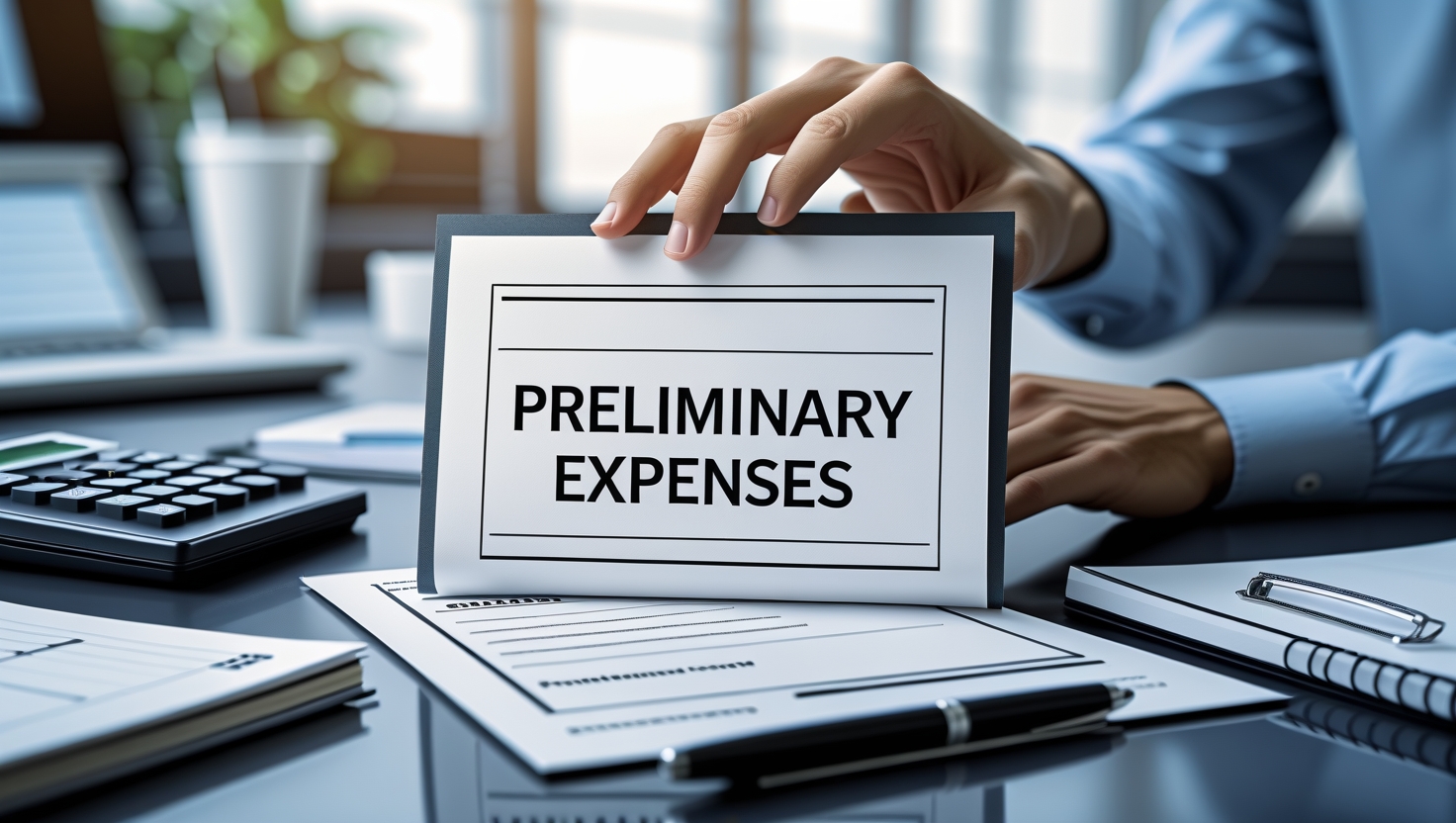
Introduction to Preliminary Expenses #
Starting a business is exciting, but it also comes with costs. Before your business officially begins operations, you need to spend money on various essentials. These early costs are called preliminary expenses, also known as business pre-opening costs or pre-operative expenses.
Think of preliminary expenses as the foundation of your business. Just like you need strong bricks to build a house, you need to manage these costs incurred wisely to build a successful business and realize future economic benefits.
In India, understanding these costs can help you plan better, follow the Income Tax Act, and avoid common financial mistakes during the commencement of business.
Why Preliminary Expenses Matter for Indian Small Businesses #
Managing your startup costs is crucial for small businesses in India. Here’s why:
- Better Financial Planning – Knowing your pre-operational and setup expenses helps create a more accurate project report and budget.
- Good Money Management – Tracking expenses incurred in establishing a legal entity such as legal, registration, and marketing costs can avoid overspending.
- Following Legal Rules – Under the Income Tax Act, proper documentation of preliminary expenses incurred is essential for tax deductions and reporting in financial statements.
- Attracting Investors – Detailed cost tracking makes your balance sheet transparent and appealing to banks and investors who assess capital employed.
Planning your facility or business pre-launch phase with a strong financial base ensures smoother growth and compliance.
Types of Preliminary Expenses #
Every business is different, but most companies have similar pre-opening costs. These usually include:
Legal and Registration Fees
Before you start, you need to establish a legal entity and complete the necessary documentation:
- Business registration fees
- A legal adviser or legal fees
- GST registration
- Trademark registration
Marketing and Advertising Costs
To attract your first customers, you might invest in:
- Logo design
- Website development
- Social media campaigns
- Brochures, banners, and launch event promotions
Market Research and Planning
A good market survey and business plan help you understand:
- Customer preferences
- Competitor strengths
- Feasibility analysis through conducting market studies or expert consultation
Office or Infrastructure Setup Costs
To start operations, you may spend money on:
- Rent and security deposits
- Furniture and office equipment
- Computers, software, and IT setup
- Utility connections like internet and electricity
Professional Services
Hiring professionals can help ensure a legally and financially stable business start:
- Chartered accountants
- Legal experts
- Business consultants for writing project reports
How to Manage Preliminary Expenses Effectively #
Plan and Budget Wisely
- List all expected preliminary expenses incurred
- Allocate your capital employed strategically
- Stick to essentials that offer future economic benefits
Keep Track of Every Expense
- Use a tool like Vyapar app to track each rupee spent
- Save every invoice and receipt
- Regularly review your balance sheet and expense log
Categorize Expenses Properly
Group your preliminary expenses under standard categories like pre-operative, legal, and marketing in your accounting treatment. This makes it easier to prepare your financial statements and claim deductions.
Real-life examples #
Tech Startup
Spent money on:
- Website and app development
- Hiring software engineers
- Rent and hardware setup
Retail Business
Incurred:
- Shop lease and deposit
- Stock procurement
- Store layout and promotional materials
Consulting Firm
Invested in:
- Commencement of business documentation
- Website and professional branding
- Accountant to manage accounting treatment
How Vyapar App Helps #
The Vyapar App supports small businesses by simplifying the tracking of preliminary expenses incurred during the pre-operational phase.
- Simple Expense Tracking – Record every rupee of pre-opening costs instantly
- Automated Calculations – Keep your financial statements accurate and audit-ready
- Real-Time Reports – Monitor capital employed and spending
- Tax-Friendly Features – Compliant with the Income Tax Act and GST Rules
FAQ’s: #
What are preliminary expenses in business?
Preliminary expenses are expenses incurred in establishing a legal entity, like registration, licensing, and marketing before your business starts operating.
Are preliminary expenses tax-deductible in India?
Yes, under the Income Tax Act, preliminary expenses can be amortized over five years in your financial statements.
How can I reduce my preliminary expenses?
Create a budget, choose cost-effective tools, and focus only on costs that offer future economic benefits.
How do I record preliminary expenses in accounting?
They are first shown as assets and gradually moved to the profit and loss account based on appropriate accounting treatment.
Can I get funding to cover preliminary expenses?
Yes, you can raise funds via startup loans, schemes, or investors to cover pre-operative expenses and business pre-opening costs.
Conclusion #
Managing your preliminary expenses well sets the foundation for business success. Whether it’s legal fees, market surveys, or office setup, tracking these costs is key. With smart budgeting and tools like Vyapar, you can present cleaner financial statements, optimize capital employed, and avoid mistakes during the commencement of business.
Plan smart, stay compliant, and give your venture the best possible start.
Use Vyapar App to handle billing, stock & payments all in one place.
Make bills, track stock, and handle payments in one place.
